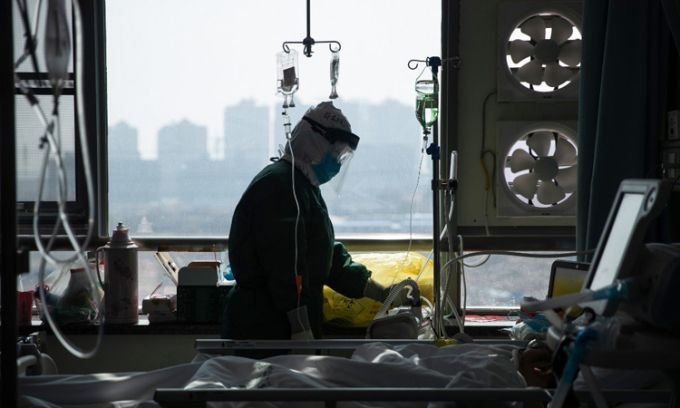Ghosts haunt the Chinese people
Liu, a television producer in Beijing, China, decided to cancel his flight on January 22 to Wuhan to celebrate the Lunar New Year with his family, after rumors appeared about a virus that was spreading.
`Canceling the plane ticket was the right choice, but I’m not happy at all,` the 25-year-old woman said.
Liu stayed up all night worrying about her parents, couldn’t concentrate on work, and languished in insecurity.
Medical staff treat patients infected with nCoV at a hospital in Wuhan, Hubei province, China on February 22.
After Covid-19 broke out in Wuhan, Hubei province in December 2019, the Chinese government applied a series of travel restrictions, mandatory long-term self-quarantine, and blockade of dozens of cities.
Mainland China currently records more than 80,000 nCoV infections, more than 2,900 deaths and more than 47,000 recoveries.
However, the mental damage to people during the government’s fierce fight against the epidemic cannot be erased.
The problem is even more serious for people with connections to Hubei province like Liu.
An anonymous doctor working on the frontline against Covid-19 in Wuhan said he always sleeps in the hospital dormitory and has not seen his family for more than a month.
Another medical worker in Wuhan faced inundated phone calls from patients and their families.
`I feel bad, but I am not allowed to flinch and must continue to work. Every day I am shocked by the deaths and fear that I may infect my family,` the nurse said.
The government sent a team of psychiatrists to hospitals in Wuhan to ease the stress of frontline medical workers.
Dr. Zhao Ruoping, an expert at Peking University and a member of a non-profit organization, said consultants are receiving more and more requests for help from doctors and Wuhan residents.
Most calls come from residents facing panic attacks, fear of infection or financial pressure.
Xia Rui, representative of Wuchang Xinyun Social Work Service Center in Wuhan, a non-profit organization that provides free psychological consultation, said the majority of callers do not have symptoms of nCoV infection, but still
Guilt is also a common mood.
`I can only swallow the pain inside,` the 42-year-old man said, expressing his hope that the epidemic will soon pass so he can visit his aunt’s grave, who always treated him like his own son.
Mei Xin, a software developer in Wuhan, has been living in Zhengzhou city for the past month after coming here to visit her wife’s relatives.
Every day Mei calls her 90-year-old grandmother.
While stuck in Beijing, Liu Xiaoxian tried to maintain a connection to his homeland by poring over social media posts by a writer in Wuhan, telling about daily life at the epicenter of the epidemic.
Liu regularly video chats with her parents, trying to help them stay calm.
Recently, this television producer went to Berlin, Germany to work.
`I wish I could be with my parents. At least I could help, by becoming a volunteer or doing something,` Liu said.














Post Comment